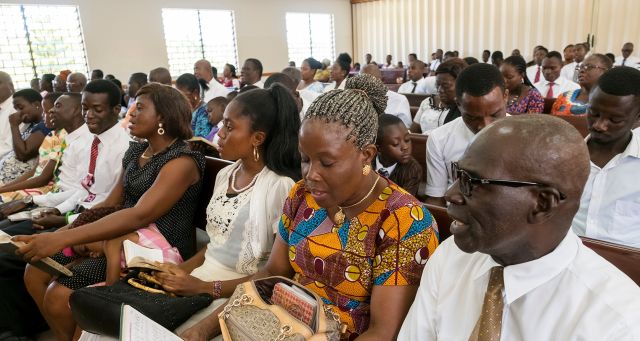Sunday School
Come Follow Me
Sunday School lessons are taught on the 1st and 3rd Sundays.

August 28-September 3
1 Corinthians 8–13
“Ye Are the Body of Christ”
In Paul’s time, Corinth was a wealthy trade center with residents from all over the Roman Empire. With so many different cultures and religions in the city, Church members in Corinth struggled to maintain unity, so Paul sought to help them find unity in their belief in Christ. This unity was to be more than just peaceful coexistence; Paul wasn’t asking them merely to tolerate each other’s differences. Rather, he taught that when you join the Church of Jesus Christ, you are “baptized into one body,” and every body part is needed (1 Corinthians 12:13). When one member is lost, it’s like losing a limb, and the body is weaker as a result. When one member suffers, we should all feel it and do our part to relieve it. In this kind of unity, differences are not just acknowledged but cherished, because without members of diverse gifts and abilities, the body would be limited. So whether you feel like you’ve always been at home in the Church or find yourself wondering if you truly belong, Paul’s message to you is that unity is not sameness. You need your fellow Saints, and your fellow Saints need you.
September 4-10
1 Corinthians 14–16
“God Is Not the Author of Confusion, but of Peace”
Because the Church and its doctrines were relatively new in Corinth, it’s understandable that Corinthian Saints encountered confusion. Paul had previously taught them the fundamental truth of the gospel: “That Christ died for our sins … and that he was buried, and that he rose again the third day” (1 Corinthians 15:3–4). But some members soon began teaching that “there is no resurrection of the dead” (1 Corinthians 15:12). Paul implored them to “keep in memory” the truths they had been taught (1 Corinthians 15:2). When we encounter conflicting opinions about gospel truths, it is good to remember that “God is not the author of confusion, but of peace” (1 Corinthians 14:33). Listening to the Lord’s appointed servants and holding to the simple truths they repeatedly teach can help us find peace and “stand fast in the faith” (1 Corinthians 16:13).


September 11-17
2 Corinthians 1–7
“What Wilt Thou Have Me to Do?”
Sometimes, being a Church leader means having to say some difficult things. This was true in Paul’s day just as it is today. Apparently a previous letter from Paul to the Corinthian Saints included chastening and caused hurt feelings. In the letter that became 2 Corinthians, he tried to explain what had motivated his harsh words: “Out of much affliction and anguish of heart I wrote to you with many tears; not that ye should be grieved, but that ye might know the love which I have more abundantly unto you” (2 Corinthians 2:4). When you’re on the receiving end of some correction from a leader, it definitely helps to know that it is inspired by Christlike love. And even in those cases where it is not, if we’re willing to see others with the kind of love Paul felt, it’s easier to respond appropriately to any offenses. As Elder Jeffrey R. Holland counseled, “Be kind regarding human frailty—your own as well as that of those who serve with you in a Church led by volunteer, mortal men and women. Except in the case of His only perfect Begotten Son, imperfect people are all God has ever had to work with” (“Lord, I Believe,” Ensign or Liahona, May 2013, 94).
September 18-24
2 Corinthians 8–13
“God Loveth a Cheerful Giver”
What would you do if you heard that a congregation of Saints in another area was struggling in poverty? This was the situation that Paul described to the Corinthian Saints in 2 Corinthians 8–9. He hoped to persuade the Corinthian Saints to donate some of their abundance to Saints in need. But beyond a request for donations, Paul’s words also contain profound truths about giving: “Every man according as he purposeth in his heart, so let him give; not grudgingly, or of necessity: for God loveth a cheerful giver” (2 Corinthians 9:7). In our day, there are still Saints throughout the world who are in need of help. Sometimes the most we can do for them is to fast and donate fast offerings. In other cases, our giving can be more direct and personal. Whatever forms our sacrifices take, it’s worth examining our motivations for giving. Are our sacrifices expressions of love? After all, it’s love that makes a giver cheerful.

